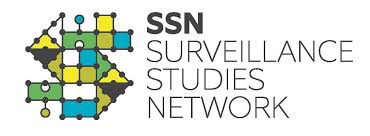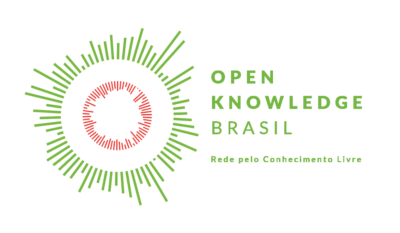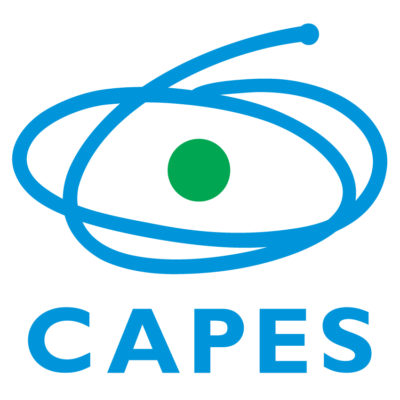CALL FOR PAPERS
ASYMMETRIES AND (IN) VISIBILITIES: SURVEILLANCE, GENDER AND RACE
VI LAVITS International Symposium
Salvador, June 26-28, 2019
Although the growing presence of surveillance systems in urban, informational and social spaces is a global phenomenon, its local inscriptions carry singularities that deserve to be studied and debated. It is known that in Latin America, and particularly in Brazil, surveillance and control technologies and practices are historically linked to colonial, state and economic structures that produce inequalities, segregation or even extermination of specific populations – indigenous and black especially. It is also known that the criminalization of poverty has been reproduced at different moments in Latin American and Brazilian history, placing territories, communities and poor populations as primary targets of violence and control by the State. At the same time, various forms of control and surveillance of bodies and lives of women are historically known.
Despite the evidence of all these processes, Surveillance Studies have not yet given them due attention. This edition of LAVITS International Symposium intends to tackle this gap, taking into account both the historical legacies of the relationship between surveillance, gender and race, as well as its contemporary unfoldings. Current architectures, dynamics, and surveillance technologies continue to be defined by strong asymmetries: monitoring, controlling and punishing certain groups, while ensuring the safety, comfort, and mobility of others. Advances in biometrics, algorithmic surveillance, facial recognition systems, massive analysis of personal data for the production of behavioral profiles and microtargeting, among many other examples, have reinforced concerns about the reproduction of inequalities, prejudices and discriminations. Similar power structures are replicated in urban and rural spaces, at the border control, and in informational space.
The production of asymmetries is associated to a complex regime of (in)visibilities, and this is also a topic of discussion. Devices that promise to better, farther, closer or truly see, produce norms, patterns, erasures and silencing. Surveillance and control apparatuses operate thus between the invisibility of subjugated bodies and subjects and the hypervisibility of the racialized, sexually marketed or hostile bodies of indigenous and black people, women and transsexuals. Such (in)visibility regimes are articulated with architectures of violence that make some individuals more suspicious, dangerous, undesirable, and even more killable than others. Understanding the legacies and new forms of these asymmetries and invisibilities, as well as exploring and analyzing their design in contemporary surveillance apparatuses, means not only to fill a gap in this field of knowledge, but also to open new horizons and practices of research and public debate on the subject.
LAVITS (Latin American Network for Surveillance, Technology and Society Studies), founded in 2009, has members from at least 14 institutions from four Latin American countries (Argentina, Brazil, Chile and Mexico) and one European country (Belgium). Holding international symposia in different Latin American countries (such as Brazil, Mexico, Argentina and Chile), LAVITS returns to Brazil in 2019, to the city of Salvador (Bahia), appropriately situated for discussions on asymmetries and (in) visibilities. This year’s symposium aims to promote an interdisciplinary area of debate and exchange of knowledge on the relationship between surveillance technologies and the reproduction of asymmetries in Latin America, especially those related to socioeconomic, racial and gender discrimination. LAVITS invites researchers, artists and activists to submit abstracts, which may be linked, but not limited to, the following topics:
- Surveillance, inequalities and vulnerabilities
• Asymmetries of surveillance: racism and sexism
• Affects and technologies: control and insurgency networks
• Bodies, techniques and (in) visibility regimes
• Art, aesthetics and (in) visibility policies - Subjectivities and modes of subjectivation in surveillance culture
• Techno-activism, feminism and storytelling
• Technopolitics of the common: production, appropriation, extraction and resistances
• Knowledge, technologies and resistance: ancestry and decoloniality
• Laboratories, research methodologies and experimental practices in surveillance studies
• Research and Intervention: activist research; fiction; simulation; pre-figuration and prototypes.
• Surveillance inheritance and resistance tactics in Latin America: quilombolas, indigenous peoples, land workers etc.
• Social movements and conflicts: anonymity, cryptography and security
• Public communication on surveillance in Latin America: specificities and challenges
• Necropolitics, the State and neoliberalism: vulnerable populations, territories and ways of life
• Democracy, Exception and Authoritarianism in surveillance capitalism
• Discourse of hatred and disinformation in sociotechnical networks
• Democracy and control machinery
• Elections and Big Data
• Algorithmic governmentality, artificial intelligence and machinic capitalism
• Personal, behavioral and psychometric data in sociotechnical networks
• Surveillance, platform capitalism and the economic use of informational data
• Global digital work on platform and surveillance capitalism
• Work and automation: control, regulation, extraction, rights
• Cities and territories: from smart management to the militarization of daily life
• Subversive Territorialities
• Verticality policies: drones, satellites and overhead visibilities
• Infrastructures and hyper-objects of surveillance and control
GUIDELINES FOR SUBMISSIONS
Deadline for proposals is March 15th,2019.
Workshops, artistic interventions, individual papers and free sessions. Abstracts for individual papers must be limited to 300 words, and include three to five keywords.
Those who wish to coordinate free sessions should also send their proposals describing the general theme of the session (up to 500 words) and guest presenters (up to 4 participants). The coordinator of the session will be responsible for contacting guests and ensuring their presence at the event.
Workshop proposals should include: workshop title, workshop description (up to 300 words), target audience and special workshop requirements (projector, desks, among others).
Proposals for artistic interventions should include: title of the work, format, description (up to 300 words) and technical requirements.
The format of the document for abstracts and other proposals will be the same for all modalities (individual works, free sessions, workshops and artistic interventions). Texts should use font 12, line spacing 1.5, justified. All submissions must include, in the heading: title, modality, presenter/workshop organizer/chair personal data (full name, institutional affiliation, title and email), abstract or description of the proposal, according to the modality.
Submissions are accepted in Portuguese, Spanish or English, in PDF format, .doc or .odt to be sent by email to lavits2019@ufba.br, using “LAVITS_2019” as the subject of the message.
In case of acceptance, deadline for sending full paper version is May 30th, 2019.
Papers presented during the symposium will be published in the event’ proceedings.
ORGANIZING COMMITTEE
Fernanda Bruno (UFRJ), Paola Barreto Leblanc (UFBA), Mari Queiroz (Pretas Hacker), Sil Bahia (Preta Lab), Graciela Natansohn (Gig@ – UFBA), Mônica Paz (Gig@ – UFBA), Rodrigo Firmino (PUCPR), Anna Bentes (Medialab.UFRJ).
SCIENTIFIC COMMITTEE
Bruno Cardoso (UFRJ), Fernanda Bruno (UFRJ), Graciela Natansohn (UFBA), Henrique Parra (Unifesp), Karla Brunet (UFBA), Marta Kanashiro (Unicamp), Mônica Paz (UFBA), Pablo Rodriguez (UBA), Paola Barreto Leblanc (UFBA), Rafael Evangelista (Unicamp), Rodrigo Firmino (PUCPR), Rosa Maria Leite Ribeiro Pedro (UFRJ), Izabela Domingues (UFPE), Kênia Freitas (UFES), Tharsila Fariniuk (PUC), Paulo Lara (Artigo19), Rodrigo Gonzatto (PUCPR), André Lemos (UFBA), Icaro Vidal (PUC-SP), André Holanda (UFRRJ), Frederick van Amstel (UTFPR), Lynn Alves (UFBA) Laura Castro (UFBA), José Carlos Ribeiro (UFBA), Cezar Migliorin (UFF), Diego Vicentin (Unicamp), Daniela Araújo (Maria Lab), Gabriel Menotti (UFES), Carolina Cantarino Rodrigues (Unicamp), Edson Teles (Unifesp), Alexandre Hannud Abdo (LISIS-INRA, France), Maria Fernanda Novo Santos (Unesp), Mariela Brazon Hernandez (UFBA), Mary Valda Souza Sales (UFBA), Janaína dos Reis Rosado (UNEB), Isa Beatriz da Cruz Neves (UFBA), Luciana Guilhon Albuquerque (UFRJ), Camila Santana (IFCTB), Marcus Bastos (PUC -SP), Karina Menezes (FACED – UFBA), Daniela Manica (UNICAMP), Irme Bonamigo (U. Chapeco).
IMPORTANT DATES
Abstracts: March 15th, 2019
Notification of acceptance: April 5th, 2019
Full papers: May 30th, 2019 – Dealine extended until Wednesday, June 19th.
CONTACT
lavits2019@ufba.br
HOSTS
Rede LAVITS, IHAC-UFBA and gig@/Facom-UFBA
SUPPORT








